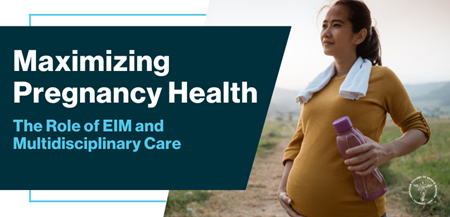Miguel Sánchez-Polán, Ph.D., Taniya Nagpal, Ph.D., and Ruben Barakat, Ph.D. |
July
24, 2023
 Pregnancy is one of the most complex periods in human life, and every year more research is published detailing how events experienced during gestation affect the future growth and development of the child. Epigenetic factors are particularly impactful during this time, and maternal lifestyle during pregnancy is of enormous importance.
Pregnancy is one of the most complex periods in human life, and every year more research is published detailing how events experienced during gestation affect the future growth and development of the child. Epigenetic factors are particularly impactful during this time, and maternal lifestyle during pregnancy is of enormous importance.
Thus, the current worldwide rates of sedentary behavior during pregnancy are acutely worrying: Globally, barely 20% of pregnant women are sufficiently active to meet the current physical activity guidelines for health during pregnancy. We believe one way to address this issue is to create obstetric care teams that support and encourage pregnant women to engage in physical activity.
Regular appointments with obstetric health care providers are a standard component of clinical care, allowing specialists to monitor how a pregnancy is progressing. Alarmingly, during these follow-ups we are seeing an increase in gestational diabetes, hypertension, obesity and mental illnesses — all conditions in which physical activity has been shown be an important part of the management approach.
The COVID-19 pandemic further increased rates of sedentary behavior and associated health issues. It likewise constituted a period of increased anxiety globally, from a pre-pandemic baseline of 38,249 cases per 100,000 people to 48,024 cases per 100,000 people. More to the point, roughly 57% of pregnant women exhibited symptoms of anxiety during the pandemic.
Anxiety is associated with a number of other pathologies, from heart disease to cancer and stroke, as well as the hypertension and gestational diabetes observed in the follow-ups discussed above. Physical activity has been shown to prevent and reduce prenatal anxiety and anxiety symptoms, so why are so few pregnant women active?
The question becomes more confounding when we realize the period of the COVID-19 pandemic saw an enormous increase in the amount of health information available, particularly on social media, about the benefits of physical activity. Despite growing access to this information, sedentary behavior has continued to increase.
The specific reasons why the population generally, and pregnant women in particular, remain sedentary despite ready access to health information demonstrating the benefits of physical activity are still unclear. However, our research indicates that adding physical activity professionals to the already established multidisciplinary pregnancy care team (e.g., gynecologists, obstetricians and midwives) improves pregnant women’s adherence to supervised exercise programs — particularly since the regularity of these appointments provides us with the opportunity to consistently reinforce to patients the necessity of physical activity and to support them with appropriate exercise prescriptions. Our research group, which works with public medical centers and exercise professionals at Spanish public universities, has seen significant rates of exercise adherence in these programs. Ideally, such teams would proliferate not only throughout Spain but in other countries as well.
Physical activity during pregnancy has a profound effect on the life of both the mother and child. Further, children who grow up in an environment that values physical activity may be more likely to stay active themselves, making the value of the multidisciplinary approach our team has developed even more apparent.
Miguel Sánchez-Polán, Ph.D., is a researcher focused on physical activity during pregnancy at the Universidad Politécnica de Madrid in Spain.
Taniya Nagpal, Ph.D., is an assistant professor at the University of Alberta within the faculty of kinesiology, sport and recreation researching adherence to health behaviors and the psychosocial barriers to them, such as weight stigma, pre conception, during pregnancy and postpartum.
Ruben Barakat, Ph.D., is a full professor at the Universidad Politécnica de Madrid and a leading researcher studying the effects of physical activity during pregnancy on the mother, fetus and newborn.